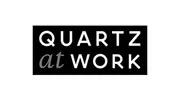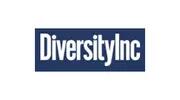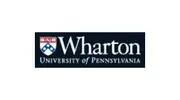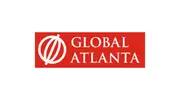Media Coverage

The Newark Times
Rutgers Business School’s strength in preparing MBA students to create new businesses and to demonstrate the innovative thinking of entrepreneurs was highlighted in a new ranking by Poets & Quants and Inc. Magazine.
The Rutgers MBA is ranked as the No. 24 Best MBA Program for Entrepreneurship in the world. That ranking placed Rutgers as the No. 1 Public MBA for Entrepreneurship in the Northeast and No. 1 among public business schools on the East Coast.
Rutgers is also positioned as the No. 4 MBA Program for Entrepreneurship among its peers in the Big Ten based on the ranking by Poets & Quants and Inc. Magazine.
“The ranking shows the strength of our faculty knowledge and the MBA curriculum that is imprinted on our MBA students,” Rutgers Business School Dean Lei Lei said. “In the face of the fast-changing world of technology, digitization and the Disruption Era, this specialty ranking is more important than ever.”
The Rutgers MBA is ranked as the No. 24 Best MBA Program for Entrepreneurship in the world. That ranking placed Rutgers as the No. 1 Public MBA for Entrepreneurship in the Northeast and No. 1 among public business schools on the East Coast.
Rutgers is also positioned as the No. 4 MBA Program for Entrepreneurship among its peers in the Big Ten based on the ranking by Poets & Quants and Inc. Magazine.
“The ranking shows the strength of our faculty knowledge and the MBA curriculum that is imprinted on our MBA students,” Rutgers Business School Dean Lei Lei said. “In the face of the fast-changing world of technology, digitization and the Disruption Era, this specialty ranking is more important than ever.”

The Regulatory Review
Taxpayers use IRS Form 1040 for personal income tax returns. Jay Soled, tax professor at Rutgers University, and Kathleen DeLaney Thomas, director of the UNC School of Law Tax Institute, discuss in a Boston College Law Review article how Form 1040s are almost always filled out by tax return preparers or software companies [Regulating Tax Return Preparation]. Both operate under “little regulatory oversight,” according to the authors, which allows tax preparation services to exploit the gap between Congress’s goal of maximizing its tax revenue and tax preparers’ attempts to minimize their clients’ tax obligations.

The Harvard Crimson
Rutgers Business School professor John M. Longo wrote in an email that the investments were “not surprising” choices for the University, given the stature of Alphabet and Facebook and the “large weight” of the companies in equity indexes.
Longo noted that the decision could have been made due to favorable market conditions during the quarter.
“It is not clear from HMC’s Form 13F when they purchased the stocks over the quarter. There were brief pullbacks in technology stocks in late July and late September, possibly providing HMC with an attractive entry point. The major risks to the stocks are primary regulatory in nature and not due to near-term competitive threats,” he wrote.
Longo said that HMC could be taking into account worsening COVID-19 conditions in the United States.
Longo noted that the decision could have been made due to favorable market conditions during the quarter.
“It is not clear from HMC’s Form 13F when they purchased the stocks over the quarter. There were brief pullbacks in technology stocks in late July and late September, possibly providing HMC with an attractive entry point. The major risks to the stocks are primary regulatory in nature and not due to near-term competitive threats,” he wrote.
Longo said that HMC could be taking into account worsening COVID-19 conditions in the United States.

WalletHub
Americans are obsessed with deals, especially when it comes to Black Friday.
While Black Friday is traditionally associated with the best prices relative to the rest of the year, we should pause from our spending and ask how good of a deal we are really getting.
What is a good strategy for identifying the best deals on Black Friday?
Know what it is you want and try to avoid the temptation just to "buy" because something is on sale. It is only a deal if you wanted and were considering purchasing the item at regular pricing.
While Black Friday is traditionally associated with the best prices relative to the rest of the year, we should pause from our spending and ask how good of a deal we are really getting.
What is a good strategy for identifying the best deals on Black Friday?
Know what it is you want and try to avoid the temptation just to "buy" because something is on sale. It is only a deal if you wanted and were considering purchasing the item at regular pricing.

WalletHub
Do you think consumers put too much emphasis on a credit card’s annual fee?
The annual fee is an important factor to consider since, by definition, it occurs every year and can add up over time. It should be an important consideration when choosing a card, but not the only one.
Are there any situations when it’s especially important to get a credit card with no annual fee?
For most individuals, there is no need to open a credit card that has an annual fee. Many no-fee cards have great reward programs, including providing cashback, free plane tickets, and discounts on groceries and gasoline. Specific vendors, such as Amazon.com, also provide cards that provide a discount for items purchased on their websites. However, if you do a large amount of targeted spending, it may make sense to get a card that charges an annual fee. For example, the Platinum Card from American Express charges a hefty $550 annual fee. However, the card's perks include $200 in cash for Uber Rides, $200 for airline incidental fees (e.g., baggage charges), some TSA and Global Entry Fee reimbursement, hotel upgrades, and many other features. If I traveled a lot, that type of card may be attractive to me and eventually pay for itself.
The annual fee is an important factor to consider since, by definition, it occurs every year and can add up over time. It should be an important consideration when choosing a card, but not the only one.
Are there any situations when it’s especially important to get a credit card with no annual fee?
For most individuals, there is no need to open a credit card that has an annual fee. Many no-fee cards have great reward programs, including providing cashback, free plane tickets, and discounts on groceries and gasoline. Specific vendors, such as Amazon.com, also provide cards that provide a discount for items purchased on their websites. However, if you do a large amount of targeted spending, it may make sense to get a card that charges an annual fee. For example, the Platinum Card from American Express charges a hefty $550 annual fee. However, the card's perks include $200 in cash for Uber Rides, $200 for airline incidental fees (e.g., baggage charges), some TSA and Global Entry Fee reimbursement, hotel upgrades, and many other features. If I traveled a lot, that type of card may be attractive to me and eventually pay for itself.

ROI
The COVID-19 pandemic may have changed the commercial real estate sector,
but it didn’t stop it. The pandemic led to a pivot, one that still is impacting
CRE today — and one that figures to do so in the months (even years) ahead.
That’s why we have expanded this year’s version of the ROI Influencers: Real Estate list — adding more of the folks who have helped developers adjust to the new normal.
Morris Davis, academic director, Rutgers Center for Real Estate
New Jersey is fortunate to have outstanding real estate programs that prepare the next generation for a variety of careers in the sector.
but it didn’t stop it. The pandemic led to a pivot, one that still is impacting
CRE today — and one that figures to do so in the months (even years) ahead.
That’s why we have expanded this year’s version of the ROI Influencers: Real Estate list — adding more of the folks who have helped developers adjust to the new normal.
Morris Davis, academic director, Rutgers Center for Real Estate
New Jersey is fortunate to have outstanding real estate programs that prepare the next generation for a variety of careers in the sector.

NJ Spotlight News
Last week, New Jersey celebrated women in the state who not only created unique business ideas but successfully put them into action. The New Jersey Chamber of Commerce honored a number of women, including Yla Eason, a Rutgers professor who also created a toy company with a focus on strengthening the self-image of Black and brown children.

The New York Times
Readers reflect on the change brought on by the pandemic.
To the Editor:
I miss being in the same room as my students, especially the direct eye contact that’s so automatic in a classroom and so difficult on Zoom. I miss the demarcation between office and non-office time that commuting afforded me. I miss the family and friends I haven’t seen in more than seven months.
I know that I’m among the lucky ones, with a home and food on the table and fulfilling work to keep me busy and a partner to share all this with. But Ashley Fetters’s article reminded me how much I miss those “weak ties” that are actually among the most resilient.
To the Editor:
I miss being in the same room as my students, especially the direct eye contact that’s so automatic in a classroom and so difficult on Zoom. I miss the demarcation between office and non-office time that commuting afforded me. I miss the family and friends I haven’t seen in more than seven months.
I know that I’m among the lucky ones, with a home and food on the table and fulfilling work to keep me busy and a partner to share all this with. But Ashley Fetters’s article reminded me how much I miss those “weak ties” that are actually among the most resilient.

Daily Mail
Concert goers often find their view blocked by the person in front of them who is trying to capture the perfect 'Instagram moment' with their phone.
But experts say filming a live event, posting photos and video on platforms like Instagram and providing a running commentary on Twitter can actually improve the experience.
'In contrast to popular press advice, this research uncovers an important benefit of technology's role in our daily lives,' said Gabriela Tonietto at Rutgers University in New Jersey, US.
'By generating content relevant to ongoing experiences, people can use technology in a way that complements, rather than interferes with, their experiences.'
But experts say filming a live event, posting photos and video on platforms like Instagram and providing a running commentary on Twitter can actually improve the experience.
'In contrast to popular press advice, this research uncovers an important benefit of technology's role in our daily lives,' said Gabriela Tonietto at Rutgers University in New Jersey, US.
'By generating content relevant to ongoing experiences, people can use technology in a way that complements, rather than interferes with, their experiences.'

Penn State News
Two featured speakers sponsored by Smeal College of Business as part of Global Entrepreneurship Week 2020: Martin Atkins (left) will speak about the entrepreneurial response to the pandemic; Jerome Williams (right) will speak on challenges faced by minority entrepreneurs seeking funding from financial institutions.
Jerome Williams, distinguished professor and fellow of the Center for Urban Entrepreneurship and Economic Development at Rutgers University, is another GEW speaker sponsored by the Smeal College of Business. Williams is widely recognized for his expertise in multicultural marketing and social justice in the marketplace.
Jerome Williams, distinguished professor and fellow of the Center for Urban Entrepreneurship and Economic Development at Rutgers University, is another GEW speaker sponsored by the Smeal College of Business. Williams is widely recognized for his expertise in multicultural marketing and social justice in the marketplace.

Morningstar
Gebrüder Weiss USA, a global freight forwarder with a core business of overland transport, air, and sea freight and logistics, has pledged a gift of $25,000 in total to Rutgers University Foundation to encourage diversity and ease financial burdens for students studying the field of logistics. The gift supports creating the "Gebrüder Weiss Supply Chain Leadership Scholarship" for a period of five years, through the academic year of 2024-2025.
"This scholarship money will help make it possible for underrepresented students to attend Rutgers Business School, to study the field of supply chain management, and to consider many possible career paths," Dean Lei said. "We strive to promote diversity and inclusion across all of the academic programs within Rutgers Business School. The ability of companies like Gebrüder Weiss to create scholarships for underrepresented students helps us to achieve that and strengthens our efforts to cultivate professionals and leaders for the future business world."
"This scholarship money will help make it possible for underrepresented students to attend Rutgers Business School, to study the field of supply chain management, and to consider many possible career paths," Dean Lei said. "We strive to promote diversity and inclusion across all of the academic programs within Rutgers Business School. The ability of companies like Gebrüder Weiss to create scholarships for underrepresented students helps us to achieve that and strengthens our efforts to cultivate professionals and leaders for the future business world."

Science Daily
Researchers from Rutgers University and New York University published a new paper in the Journal of Marketing that explores the phenomenon of user-generated content during experiences.
The study, forthcoming in the Journal of Marketing, is titled "Generating Content Increases Enjoyment by Immersing Consumers and Accelerating Perceived Time" and is authored by Gabriela Tonietto and Alixandra Barasch.
"Enjoy the moment. Put down your phone." The media is full of headlines telling consumers that to truly enjoy themselves and their experiences, the first step is to ditch their cellphones. Yet this advice often appears to fall on deaf ears. Major events routinely coincide with huge surges in social media posts as millions tweet during experiences like the Super Bowl and World Cup. This poses something of a conundrum. People clearly generate large amounts of content -- remarking on what they are currently doing, hearing, and seeing -- as experiences unfold, but is this behavior helpful or harmful?
The study, forthcoming in the Journal of Marketing, is titled "Generating Content Increases Enjoyment by Immersing Consumers and Accelerating Perceived Time" and is authored by Gabriela Tonietto and Alixandra Barasch.
"Enjoy the moment. Put down your phone." The media is full of headlines telling consumers that to truly enjoy themselves and their experiences, the first step is to ditch their cellphones. Yet this advice often appears to fall on deaf ears. Major events routinely coincide with huge surges in social media posts as millions tweet during experiences like the Super Bowl and World Cup. This poses something of a conundrum. People clearly generate large amounts of content -- remarking on what they are currently doing, hearing, and seeing -- as experiences unfold, but is this behavior helpful or harmful?

MSN | Money
Holiday shopping as a whole won’t have the same meaning this year or for many years in the future, says Ashwani Monga, a marketing professor at Rutgers University who specializes in consumer psychology; with the retail industry in tatters, it’s unlikely to represent the break-even point for businesses (when ledgers go from red to black). And optimistic forecasts that families will want to maintain the holiday tradition of a visit to the mall may underestimate the desire to cut or consolidate trips, not to mention the specter of more restrictions or shutdowns.
“Even if stores do open, people will be reluctant to go out and have fun or splurge as if the last few months didn’t happen,” he says. “Shopping is a way to connect and do something for yourself, and that habit has changed during this year’s disruption. Shopping is a part of our culture, and this year has changed culture itself.”
“Even if stores do open, people will be reluctant to go out and have fun or splurge as if the last few months didn’t happen,” he says. “Shopping is a way to connect and do something for yourself, and that habit has changed during this year’s disruption. Shopping is a part of our culture, and this year has changed culture itself.”

Asbury Park Press
Can the state slow the exodus of young people?
“They (elected officials) are going to have to do everything they possibly can to keep young people… in the state,” said Arthur Guarino, an associate professor of finance and economics at Rutgers Business School.
Home prices and high costs of living remain the greatest obstacle for young professionals and families who want to remain in New Jersey, he said. “For those people who want to buy a home... it’s just too expensive,” said Guarino. “It takes up too much of a big chunk, as far as their monthly paycheck is concerned.”
“They (elected officials) are going to have to do everything they possibly can to keep young people… in the state,” said Arthur Guarino, an associate professor of finance and economics at Rutgers Business School.
Home prices and high costs of living remain the greatest obstacle for young professionals and families who want to remain in New Jersey, he said. “For those people who want to buy a home... it’s just too expensive,” said Guarino. “It takes up too much of a big chunk, as far as their monthly paycheck is concerned.”

Quartz at Work
When a CEO gets political, the reactions are usually mixed.
No corporation is immune to accusations of woke-washing. At the same time, consumers and employees have come to expect business leaders to make good use of their considerable influence.
Joanne Ciulla, a philosopher, and the director of the Institute for Ethical Leadership at Rutgers Business School, says the issue is fraught.
From an ethical point of view, leaders have to consider whether an outright endorsement of one politician or party would frighten some employees and create a hostile environment for those whose political beliefs are not aligned with the CEO’s.
No corporation is immune to accusations of woke-washing. At the same time, consumers and employees have come to expect business leaders to make good use of their considerable influence.
Joanne Ciulla, a philosopher, and the director of the Institute for Ethical Leadership at Rutgers Business School, says the issue is fraught.
From an ethical point of view, leaders have to consider whether an outright endorsement of one politician or party would frighten some employees and create a hostile environment for those whose political beliefs are not aligned with the CEO’s.

Journal of Marketing
Researchers from Boston University, Rutgers University, University of Washington, Cornell University, and the University of Pennsylvania published a new paper in the Journal of Marketing that proposes that preserving psychological ownership in the technology-driven evolution of consumption underway should be a priority for marketers and firm strategy.
The study, forthcoming in the Journal of Marketing, is titled “Evolution of Consumption: A Psychological Ownership Framework” and is authored by Carey Morewedge, Ashwani Monga, Robert Palmatier, Suzanne Shu, and Deborah Small.
Why does—and what happens when—nothing feels like it is MINE?
The study, forthcoming in the Journal of Marketing, is titled “Evolution of Consumption: A Psychological Ownership Framework” and is authored by Carey Morewedge, Ashwani Monga, Robert Palmatier, Suzanne Shu, and Deborah Small.
Why does—and what happens when—nothing feels like it is MINE?

Rutgers Today
As the task force develops Rutgers’ strategies for contributing to achieving global net-zero carbon dioxide emissions and for enhancing the university’s and New Jersey’s capacity to manage the risks of a changing climate, members of the Rutgers community are invited to attend virtual town hall meetings on Nov. 11 and Nov. 12 from 6 p.m. to 8 p.m. The Nov. 11 town hall will focus on “Envisioning a Carbon Neutral Rutgers” and Nov. 12 on “Envisioning a Climate Resilient Rutgers.”
We talked with task force co-chairs Robert Kopp and Kevin Lyons about what it means for Rutgers to become carbon neutral and climate resilient, why you should attend the upcoming town halls and what’s next for the task force.
Lyons: Climate change is absolutely affecting New Jersey residents right now. As stated in our pre-planning report, “Sea-level rise associated with global warming is responsible for about 70 percent of tidal flooding along the Jersey Shore, and in the absence of global sea-level rise, Hurricane Sandy would have flooded about 38,000 fewer New Jerseyans. A warmer atmosphere is increasing the frequency of intense rainfall events, such as those New Jersey experienced during Hurricanes Floyd and Irene. Heat waves are becoming more intense and frequent, causing deleterious impacts on human health.”
Robert Kopp is a professor in the Department of Earth and Planetary Science at the School of Arts and Sciences at Rutgers University-New Brunswick and director of the Rutgers Institute of Earth, Ocean and Atmospheric Sciences. Kevin Lyons is an associate professor of professional practice at Rutgers Business School-Newark and New Brunswick and associate director of the Rutgers Energy Institute.
We talked with task force co-chairs Robert Kopp and Kevin Lyons about what it means for Rutgers to become carbon neutral and climate resilient, why you should attend the upcoming town halls and what’s next for the task force.
Lyons: Climate change is absolutely affecting New Jersey residents right now. As stated in our pre-planning report, “Sea-level rise associated with global warming is responsible for about 70 percent of tidal flooding along the Jersey Shore, and in the absence of global sea-level rise, Hurricane Sandy would have flooded about 38,000 fewer New Jerseyans. A warmer atmosphere is increasing the frequency of intense rainfall events, such as those New Jersey experienced during Hurricanes Floyd and Irene. Heat waves are becoming more intense and frequent, causing deleterious impacts on human health.”
Robert Kopp is a professor in the Department of Earth and Planetary Science at the School of Arts and Sciences at Rutgers University-New Brunswick and director of the Rutgers Institute of Earth, Ocean and Atmospheric Sciences. Kevin Lyons is an associate professor of professional practice at Rutgers Business School-Newark and New Brunswick and associate director of the Rutgers Energy Institute.

Business Insider
The Rutgers study is a working paper, which means it hasn't yet been reviewed by an outside group of scientists.
A group of researchers — Kristina Durante, Yana van der Meulen Rodgers, Lisa Kaplowitz, and Elaine Zundl at Rutgers as well as Sevincgul Ulu at New Jersey City University — conducted a survey of 920 people in May 2020. Respondents were between ages 18 and 65 and were living with a spouse of a different gender.
The pandemic may have changed employers' thinking about the "ideal worker," Durante said. "There's more humanity." Even top performers need to find a balance between home and work, Durante added, "and men had a front-row seat to that" while working from home during the pandemic. "We're hoping that it gets more normalized."
A group of researchers — Kristina Durante, Yana van der Meulen Rodgers, Lisa Kaplowitz, and Elaine Zundl at Rutgers as well as Sevincgul Ulu at New Jersey City University — conducted a survey of 920 people in May 2020. Respondents were between ages 18 and 65 and were living with a spouse of a different gender.
The pandemic may have changed employers' thinking about the "ideal worker," Durante said. "There's more humanity." Even top performers need to find a balance between home and work, Durante added, "and men had a front-row seat to that" while working from home during the pandemic. "We're hoping that it gets more normalized."

Forbes
“Hair salons, catering, restaurants or anything related to events . . . all of that shut down, and so the success of business owners in those industries depends on how much they have in reserves or were able to get from the federal government—both of which pose challenges for Black entrepreneurs,” says Jeffrey Robinson, founding assistant director of The Center for Urban Entrepreneurship and Economic Development at Rutgers Business School.

The New York Times
The New York Times, Apollo Clients Await Inquiry’s Findings on Chief and Jeffrey Epstein, John Longo
Apollo would suffer if the inquiry turns up unflattering information about Mr. Black, said John Longo, a professor at Rutgers University Business School and chief investment officer for Beacon Trust, $3 billion investment advisory firm. But even if Mr. Black had to step away from Apollo, the firm would still be able to thrive in the long term, he said.
Mr. Longo said Apollo, which is publicly traded and has more than 1,500 employees, is far less dependent on a single person than, for example, a hedge fund, which is often tied to the fate of its founder and most seasoned trader.
Given Apollo’s size, Mr. Longo said, “they will be able to continue without interruption.”
Mr. Longo said Apollo, which is publicly traded and has more than 1,500 employees, is far less dependent on a single person than, for example, a hedge fund, which is often tied to the fate of its founder and most seasoned trader.
Given Apollo’s size, Mr. Longo said, “they will be able to continue without interruption.”

CEO Magazine
“COVID-19 has hit women particularly hard in terms of job losses, increased care responsibilities at home, and heavy representation among low-wage workers on the front lines,” says Kristina Durante, Research Director for the Center for Women in Business at Rutgers Business School in the US.
“In our survey from May 2020, men reported their contribution to unpaid household labour during the pandemic to be 48% of all the work and women reported their contribution to be 66%,” continues Durante.
“In our survey from May 2020, men reported their contribution to unpaid household labour during the pandemic to be 48% of all the work and women reported their contribution to be 66%,” continues Durante.

DiversityInc
During a virtual event hosted by Rutgers Business School Dean Lei Lei and the Rutgers Business School Office of Corporate Engagement, DiversityInc CEO Carolynn Johnson spoke to Associate Dean Sharon Lydon about Johnson's journey to becoming a leader and navigating her position as a Black woman who calls out injustice in the corporate world.
Johnson, a Rutgers Business School alum and founding board member of Rutgers’s Center for Women in Business, gave tips on how to unlock authenticity and lead diverse teams, especially in a country rife with pandemic anxiety and racial injustice. She began by talking about DiversityInc’s success despite the financial blows COVID-19 caused the business world, and mentioned that she not only sees her business’s success as financial but also moral.
Johnson, a Rutgers Business School alum and founding board member of Rutgers’s Center for Women in Business, gave tips on how to unlock authenticity and lead diverse teams, especially in a country rife with pandemic anxiety and racial injustice. She began by talking about DiversityInc’s success despite the financial blows COVID-19 caused the business world, and mentioned that she not only sees her business’s success as financial but also moral.

NJ Spotlight News
With many employees in NJ still working from home, parents are struggling to find a work-life balance as they juggle their day jobs and their child's health and education. Rhonda Schaffler speaks with Lisa Kaplowitz, director of the Rutgers Business School's Center for Women in Business, about changing roles and responsibilities at home and how parents can improve their mental health by taking advantage of working from home.

Chicago News
The United Nations Principles for Responsible Management Education (PRME) virtual event has been scheduled for October 26-29, 2020.
The PRME event will be hosted by Rutgers Business School and its Institute for Corporate Social Innovation (RICSI), co-sponsored by the UN Principles for Responsible Management Education (UN PRME), the NJ Higher Education Partnership for Sustainability (NJHEPS); the Silberman College of Business, Fairleigh Dickinson University; the Anisfield School of Business, Ramapo College; and William G. Rohrer College of Business, Rowan University.
“In light of the new AACSB Standards on social impact, this conference will be a great way to share, learn, and connect with others who are committed to social impact at universities around the U.S. and the world,” said Jeana Wirtenberg, Ph.D. and Associate Director at Rutgers Institute for Corporate Social Innovation.
The PRME event will be hosted by Rutgers Business School and its Institute for Corporate Social Innovation (RICSI), co-sponsored by the UN Principles for Responsible Management Education (UN PRME), the NJ Higher Education Partnership for Sustainability (NJHEPS); the Silberman College of Business, Fairleigh Dickinson University; the Anisfield School of Business, Ramapo College; and William G. Rohrer College of Business, Rowan University.
“In light of the new AACSB Standards on social impact, this conference will be a great way to share, learn, and connect with others who are committed to social impact at universities around the U.S. and the world,” said Jeana Wirtenberg, Ph.D. and Associate Director at Rutgers Institute for Corporate Social Innovation.

NJ Spotlight News
Millions of N95 masks now made at a retooled factory in Paterson could help protect frontline workers as a second COVID-19 wave builds in New Jersey. Hospitals still face a shortage of N95 masks, the Centers for Disease Control and Prevention’s gold standard, due to disrupted global supply chains and an uncoordinated federal response. Senior Correspondent Brenda Flanagan reports.
In the video, Associate Professor of Professional Practice Kevin Lyons, Department of Supply Chain Management, comments on the benefits of a local company controlling their supply chain as much as possible.
In the video, Associate Professor of Professional Practice Kevin Lyons, Department of Supply Chain Management, comments on the benefits of a local company controlling their supply chain as much as possible.

Rutgers University - Newark News
The School of Criminal Justice at Rutgers University–Newark began the fall 2020 semester with a new leader at the helm. Bill McCarthy, an internationally renowned criminologist and sociologist, comes to Rutgers-Newark from the University of California Davis (UC Davis), where he served as a sociology professor from 1998-2020 and chaired the Department of Sociology from 2011-2014.
Executive Vice Chancellor and Provost Ashwani Monga agrees McCarthy was exactly the person Rutgers-Newark was looking for. “Bill’s strengths align precisely with what the search committee, and the faculty, staff, and students were looking for in the next dean: someone who is experienced as an academic leader, as a scholar who works across the intersection of issues and approaches, and as a strong advocate for effective teaching and student engagement.”
Executive Vice Chancellor and Provost Ashwani Monga agrees McCarthy was exactly the person Rutgers-Newark was looking for. “Bill’s strengths align precisely with what the search committee, and the faculty, staff, and students were looking for in the next dean: someone who is experienced as an academic leader, as a scholar who works across the intersection of issues and approaches, and as a strong advocate for effective teaching and student engagement.”

Knowledge@Wharton
Make sure your message gets across by fine-tuning your communications.
Wharton’s Jonah Berger and Alex Van Zant of Rutgers Business School found that speaking slightly louder than normal and varying your overall volume increases the perception of your confidence, which in turn makes you more persuasive.
Wharton’s Jonah Berger and Alex Van Zant of Rutgers Business School found that speaking slightly louder than normal and varying your overall volume increases the perception of your confidence, which in turn makes you more persuasive.

Money Geek
Expert Advice on How to Get the Best Car Insurance
Marc Kalan
Assistant Professor of Professional Practice at Rutgers Business School
How does car insurance differ from other types of coverage and why is it so important for drivers?
Car insurance is required by law for autos to be registered and licensed. Other types of insurance, such as life, home, liability and health, all provide various protections, but these are (for the most part) personal decisions that an individual makes to protect assets or health, and are not mandated by law. Car insurance's primary function is to protect others from loss or injury caused by you, rather than protecting the insured themselves (additional coverages may also provide personal protection but not as a legal mandate).
How should drivers balance risk management and affordability when it comes to car insurance?
What can consumers do to better educate themselves on car insurance policies, coverage and pricing?
Auto insurance premiums are set based on a variety of information such as driving record, location and credit history. What challenges do consumers face in this type of pricing structure? How can drivers meet or manage these challenges?
Marc Kalan
Assistant Professor of Professional Practice at Rutgers Business School
How does car insurance differ from other types of coverage and why is it so important for drivers?
Car insurance is required by law for autos to be registered and licensed. Other types of insurance, such as life, home, liability and health, all provide various protections, but these are (for the most part) personal decisions that an individual makes to protect assets or health, and are not mandated by law. Car insurance's primary function is to protect others from loss or injury caused by you, rather than protecting the insured themselves (additional coverages may also provide personal protection but not as a legal mandate).
How should drivers balance risk management and affordability when it comes to car insurance?
What can consumers do to better educate themselves on car insurance policies, coverage and pricing?
Auto insurance premiums are set based on a variety of information such as driving record, location and credit history. What challenges do consumers face in this type of pricing structure? How can drivers meet or manage these challenges?

MSN
This year, retailers have had to predict what consumers may buy as gifts and for themselves during an economic and public health crisis.
Ashwani Monga, a Rutgers University-Newark marketing professor who studies consumer psychology, said the typical rule of thumb with gift-giving — buying items that people wouldn't buy for themselves — may be flipped on its head.
He said he expects shoppers to gravitate more than usual to practical gifts: Think winter coats, snowshoes and hiking equipment that allow friends and family to gather outdoors during chillier months. They're also looking for kitchen supplies that elevate cooking as family and friends steer clear of restaurants. A fire pit may be on their gift list this year, turning a backyard into a cozy destination where neighbors can gather but stay socially distanced.
On the other hand, he said, retailers may use promotions to push items that customers have largely ignored during the pandemic — such as dresses and watches — that appeal to their hope for a return to normal life.
Ashwani Monga, a Rutgers University-Newark marketing professor who studies consumer psychology, said the typical rule of thumb with gift-giving — buying items that people wouldn't buy for themselves — may be flipped on its head.
He said he expects shoppers to gravitate more than usual to practical gifts: Think winter coats, snowshoes and hiking equipment that allow friends and family to gather outdoors during chillier months. They're also looking for kitchen supplies that elevate cooking as family and friends steer clear of restaurants. A fire pit may be on their gift list this year, turning a backyard into a cozy destination where neighbors can gather but stay socially distanced.
On the other hand, he said, retailers may use promotions to push items that customers have largely ignored during the pandemic — such as dresses and watches — that appeal to their hope for a return to normal life.

Poets&Quants for Executives
Poets&Quants for Executives, Favorite Professors of the Executive MBA Class of 2020, Terri Kurtzberg
“I called Terri Kurtzberg for advice after being promoted to a new job because I needed some guidance on how to handle some difficult conversations. At the end of the call, she asked me to update her because “she was in it now!” I was very impressed with how generous she was with her time and that she cared enough to want to see the problem through to its resolution. (It was resolved.) Professor Kurtzberg taught my EMBA class negotiations during our first-year, week in residence. I loved her approachable teaching style, non-judgmental feedback, and all of the negotiation skills that we learned, which I still apply almost daily.”
Jeffrey S. Jhang, Rutgers Business School
Jeffrey S. Jhang, Rutgers Business School

CBC
A Marketplace investigation into Amazon Canada has found that perfectly good items are being liquidated by the truckload — and even destroyed or sent to landfill. Experts say hundreds of thousands of returns don't end up back on the e-commerce giant's website for resale, as customers might think.
Kevin Lyons, an associate professor at Rutgers University in New Jersey who specializes in supply chain management and environmental policy, says that 30 to 40 per cent of all online purchases are sent back. That number drops to less than ten per cent for merchandise bought at bricks and mortar stores.
Lyons, the Rutgers professor, thinks Amazon needs to be more transparent with its customers.
"So you don't get a sale price or you don't get a receipt for it, but the earth is actually paying the price for this," he says. "If you think about the millions and sometimes billions of transactions that are happening on this space, the impact is incredible."
Kevin Lyons, an associate professor at Rutgers University in New Jersey who specializes in supply chain management and environmental policy, says that 30 to 40 per cent of all online purchases are sent back. That number drops to less than ten per cent for merchandise bought at bricks and mortar stores.
Lyons, the Rutgers professor, thinks Amazon needs to be more transparent with its customers.
"So you don't get a sale price or you don't get a receipt for it, but the earth is actually paying the price for this," he says. "If you think about the millions and sometimes billions of transactions that are happening on this space, the impact is incredible."

Global Atlanta
The Chinese Globalization Association and SFU’s Jack Austin Center for Asia Pacific Business Studies are pleased to present a keynote speech by a distinguished Professor of Management and Global Business, Farok J. Contractor. In this keynote speech, Farok J. Contractor explored the potential for economic collaboration between China and the United States.
The talk examined the future of the US-China relationship and policy dilemmas between these two global powers.
The talk examined the future of the US-China relationship and policy dilemmas between these two global powers.

NJ Spotlight
COVID-19 overwhelmed New Jersey’s hospitals in the first couple of months of the pandemic, not just emergency rooms and the need for supplies and care, but it also took a toll on hospital finances. A new study shows 83% of New Jersey residents avoid treatment at hospitals and clinics because they’re afraid of catching the virus. Delayed treatment hurts patients and hospitals that are hemorrhaging revenues. Senior Correspondent Brenda Flanagan reports.
Professor Xin (David) Ding addresses supply chain issues at 2:10 in the video.
Professor Xin (David) Ding addresses supply chain issues at 2:10 in the video.

CNBC
Americans are coping with uncertainty as the holidays approach and they try to figure out how to safely celebrate, said Ashwani Monga, a Rutgers University-Newark marketing professor who studies consumer psychology. With no relief in sight from stimulus, cash-strapped consumers, in particular, won’t feel comfortable going on a spending spree.
“The worst part of this pandemic is we don’t know if it’s three more months,” he said. “Is it 12 more months? Will it ever get over? Will we be wearing masks forever? No one knows. For the low-income consumer, you’re even more focused on saving for these rainy days than a high-income consumer who has enough buffer to go through these times.”
“The worst part of this pandemic is we don’t know if it’s three more months,” he said. “Is it 12 more months? Will it ever get over? Will we be wearing masks forever? No one knows. For the low-income consumer, you’re even more focused on saving for these rainy days than a high-income consumer who has enough buffer to go through these times.”

USA Today
Dr. Patricia Turner, a surgeon who has been a proponent of more inclusive banking, has become the first African American named to the board of OceanFirst Financial Corp., the Shore's biggest locally owned bank.
Her appointment carries significance beyond her role as a trailblazer with the 118-year-old institution. Turner also appears to be the only current Black board member among New Jersey-based banks operating in Monmouth and Ocean counties, an Asbury Park Press review of the banks' websites and annual reports shows.
[Board] Members traditionally have tapped into their social and professional networks to hire other members, leading positions to be filled by white men, said Nancy DiTomaso, a professor at Rutgers Business School in Newark and New Brunswick women leading in business.
But that could be changing. Not only is the social justice movement prompting companies to intensify their diversity and inclusion strategies, but also research has shown companies with more diverse boards have better financial performances, DiTomaso said.
Turner's appointment to the OceanFirst board is unlikely to create dramatic change, DiTomaso said, but it could prompt other banks to follow suit.
"It creates symbolic and representational messages to people about what's possible and what should be expected in terms of who can do what in their lives," DiTomaso said.
Her appointment carries significance beyond her role as a trailblazer with the 118-year-old institution. Turner also appears to be the only current Black board member among New Jersey-based banks operating in Monmouth and Ocean counties, an Asbury Park Press review of the banks' websites and annual reports shows.
[Board] Members traditionally have tapped into their social and professional networks to hire other members, leading positions to be filled by white men, said Nancy DiTomaso, a professor at Rutgers Business School in Newark and New Brunswick women leading in business.
But that could be changing. Not only is the social justice movement prompting companies to intensify their diversity and inclusion strategies, but also research has shown companies with more diverse boards have better financial performances, DiTomaso said.
Turner's appointment to the OceanFirst board is unlikely to create dramatic change, DiTomaso said, but it could prompt other banks to follow suit.
"It creates symbolic and representational messages to people about what's possible and what should be expected in terms of who can do what in their lives," DiTomaso said.

Marketplace
Remember the early days of the pandemic? Back when panic buying meant it was nearly impossible to find things like toilet paper, rice and flour? Well, public health officials are warning that we could see a second wave of the virus before the end of the year. And this time retailers want to be prepared if there’s high demand for certain products.
But that’s thrown all the computer models they usually use out of whack. Machine learning helps run stores like Walmart and Kroger, and that’s not as useful during a pandemic.
Because a data model is only as good as its data, and computers don’t know how to factor in people’s unusual buying patterns during the pandemic. Rudi Leuschner, a professor of supply chain management at Rutgers, said retailers are going old-school.
“We use the supercomputer that everybody has built in right as they’re born, which is human intuition,” Leuschner said.
Listen to the Marketplace podcast (2:00)
https://play.publicradio.org/web/o/marketplace/segments/2020/09/28/mp_20200928_seg_Grocery_Algorithm_64.mp3
But that’s thrown all the computer models they usually use out of whack. Machine learning helps run stores like Walmart and Kroger, and that’s not as useful during a pandemic.
Because a data model is only as good as its data, and computers don’t know how to factor in people’s unusual buying patterns during the pandemic. Rudi Leuschner, a professor of supply chain management at Rutgers, said retailers are going old-school.
“We use the supercomputer that everybody has built in right as they’re born, which is human intuition,” Leuschner said.
Listen to the Marketplace podcast (2:00)
https://play.publicradio.org/web/o/marketplace/segments/2020/09/28/mp_20200928_seg_Grocery_Algorithm_64.mp3

Marketer Intel
This is a special bonus episode. Many of you know I host a weekly live stream for Cornett called Digging Deeper that is also a podcast. Before we launched this show, Winfluence, we had a few interviews specific to influence and influence marketing I wanted to make sure were available to you here.
The first one of those I’ve pulled together is with author Neal Schaffer. His new book The Age of Influence, is a great resource for anyone wishing to understand influencer marketing from a process standpoint. From strategy to tactics, Neal shares the how tos and examples of those doing it well.
Schaffer teaches Executive Education at Rutgers Business School.
The first one of those I’ve pulled together is with author Neal Schaffer. His new book The Age of Influence, is a great resource for anyone wishing to understand influencer marketing from a process standpoint. From strategy to tactics, Neal shares the how tos and examples of those doing it well.
Schaffer teaches Executive Education at Rutgers Business School.

American Marketing Association
Researchers from Rutgers University and New York University published a new paper in the Journal of Marketing that explores the phenomenon of user-generated content during experiences.
The study, forthcoming in the Journal of Marketing, is titled “Generating Content Increases Enjoyment by Immersing Consumers and Accelerating Perceived Time” and is authored by Gabriela Tonietto and Alixandra Barasch.
“Enjoy the moment. Put down your phone.” The media is full of headlines telling consumers that to truly enjoy themselves and their experiences, the first step is to ditch their cellphones. Yet this advice often appears to fall on deaf ears. Major events routinely coincide with huge surges in social media posts as millions tweet during experiences like the Super Bowl and World Cup. This poses something of a conundrum. People clearly generate large amounts of content—remarking on what they are currently doing, hearing, and seeing—as experiences unfold, but is this behavior helpful or harmful?
The study, forthcoming in the Journal of Marketing, is titled “Generating Content Increases Enjoyment by Immersing Consumers and Accelerating Perceived Time” and is authored by Gabriela Tonietto and Alixandra Barasch.
“Enjoy the moment. Put down your phone.” The media is full of headlines telling consumers that to truly enjoy themselves and their experiences, the first step is to ditch their cellphones. Yet this advice often appears to fall on deaf ears. Major events routinely coincide with huge surges in social media posts as millions tweet during experiences like the Super Bowl and World Cup. This poses something of a conundrum. People clearly generate large amounts of content—remarking on what they are currently doing, hearing, and seeing—as experiences unfold, but is this behavior helpful or harmful?

ROI
The premise seemed obvious. When the state went on lockdown and working parents not only had to work at home, but care for their children at the same time, the general consensus was that the woman’s job — and her lifestyle — would take the bigger hit.
“We thought women were going to get screwed in all of this,” Kristina Durante said.
Durante, the director of research at the Center for Women in Business at Rutgers Business School, and her colleagues were stunned to learn this wasn’t the case. In fact, many women in their study reported they had a higher job satisfaction than they did in pre-pandemic times.
This satisfaction, however, was tied to one key factor: How much their male partners helped around the house and with the kids.
“We found that men’s increased contributions at home have a positive influence on women’s job satisfaction and productivity,” Durante said. “When dads play a bigger role in child care and doing routine housework, it puts both parents in a better position to succeed at work.”
Durante, who authored the study along with Yana van der Meulen Rodgers, Lisa Kaplowitz, Elaine Zundl, and Seveincqul Ulu, said the group expected an opposite outcome.
“We thought women were going to get screwed in all of this,” Kristina Durante said.
Durante, the director of research at the Center for Women in Business at Rutgers Business School, and her colleagues were stunned to learn this wasn’t the case. In fact, many women in their study reported they had a higher job satisfaction than they did in pre-pandemic times.
This satisfaction, however, was tied to one key factor: How much their male partners helped around the house and with the kids.
“We found that men’s increased contributions at home have a positive influence on women’s job satisfaction and productivity,” Durante said. “When dads play a bigger role in child care and doing routine housework, it puts both parents in a better position to succeed at work.”
Durante, who authored the study along with Yana van der Meulen Rodgers, Lisa Kaplowitz, Elaine Zundl, and Seveincqul Ulu, said the group expected an opposite outcome.

Forbes
By: Kristina Durante, Yana van der Meulen Rodgers, Lisa Kaplowitz, Elaine Zundl, and Sevincgul Ulu
The COVID-19 pandemic radically changed both the corporate workplace and our home life overnight. For employees with the luxury of telecommuting, the initial phase of the pandemic had highs and lows. Working from home and the absence of a long commute provided the opportunity to be more productive than before.
However, for many, the “home” office was not a place of quiet isolation. It was a place where work and home life were no longer balanced, but in direct overlap. The significant increase in unpaid labor inside the home blurred the lines between paid and unpaid household labor. COVID-19 hit women particularly hard in terms of job losses, increased care responsibilities at home, and heavy representation among low-wage workers on the front lines.
The COVID-19 pandemic radically changed both the corporate workplace and our home life overnight. For employees with the luxury of telecommuting, the initial phase of the pandemic had highs and lows. Working from home and the absence of a long commute provided the opportunity to be more productive than before.
However, for many, the “home” office was not a place of quiet isolation. It was a place where work and home life were no longer balanced, but in direct overlap. The significant increase in unpaid labor inside the home blurred the lines between paid and unpaid household labor. COVID-19 hit women particularly hard in terms of job losses, increased care responsibilities at home, and heavy representation among low-wage workers on the front lines.

Rutgers Today
As dads take on more childcare and chores, both parents do better in their jobs.
Juggling diaper changes and Zoom meetings might be a good combination for some Americans. A new survey by researchers at Rutgers University reveals that working parents are happier with their job, and they are getting more done, than people without children. Researchers attribute the surprising results to a sharp increase in the number of men helping with childcare and housework during the pandemic.
“We found that men’s increased contributions at home have a positive influence on women’s job satisfaction and productivity,” said Kristina Durante, director of research at the Center for Women in Business at Rutgers Business School. “When dads play a bigger role in childcare and doing routine housework, it puts both parents in a better position to succeed at work.”
Juggling diaper changes and Zoom meetings might be a good combination for some Americans. A new survey by researchers at Rutgers University reveals that working parents are happier with their job, and they are getting more done, than people without children. Researchers attribute the surprising results to a sharp increase in the number of men helping with childcare and housework during the pandemic.
“We found that men’s increased contributions at home have a positive influence on women’s job satisfaction and productivity,” said Kristina Durante, director of research at the Center for Women in Business at Rutgers Business School. “When dads play a bigger role in childcare and doing routine housework, it puts both parents in a better position to succeed at work.”

REHACARE INTERNATIONAL
A new study by Rutgers University researchers finds that job candidates with disabilities are more likely to make a positive first impression on prospective employers when they promote technical skills rather than soft skills, such as their ability to lead others.
The findings, published in the International Journal of Conflict Management, contrast this with the results for candidates without disabilities who were positively evaluated when they highlighted either hard or soft skills during initial job interviews.
"Job interviews are challenging for everyone, but particularly so for people with disabilities who have always had difficulties presenting themselves favorably to gain employment," said Rutgers Business School professor Mason Ameri.
"Influence tactics such as emphasizing your skills and abilities are a good idea but don't necessarily work the same way for everyone," said Terri Kurtzberg, co-author and professor at Rutgers Business School. "Instead, people with disabilities should focus on job-related hard skills and competencies instead of softer skills and warmth. This choice accelerated positive impressions of employability."
The findings, published in the International Journal of Conflict Management, contrast this with the results for candidates without disabilities who were positively evaluated when they highlighted either hard or soft skills during initial job interviews.
"Job interviews are challenging for everyone, but particularly so for people with disabilities who have always had difficulties presenting themselves favorably to gain employment," said Rutgers Business School professor Mason Ameri.
"Influence tactics such as emphasizing your skills and abilities are a good idea but don't necessarily work the same way for everyone," said Terri Kurtzberg, co-author and professor at Rutgers Business School. "Instead, people with disabilities should focus on job-related hard skills and competencies instead of softer skills and warmth. This choice accelerated positive impressions of employability."

ROI
Rutgers Business School’s Center for Urban Entrepreneurship and Economic Development has received a $300,000 grant from the U.S. Economic Development Administration to strengthen its efforts to build Black- and Latino-owned tech businesses, it announced this week.
“The Build to Scale grant completes the desired P-3 trifecta of funding from the public sector, a noteworthy philanthropic organization and individuals in the private sector,” Lyneir Richardson, executive director of the CUEED, said in a prepared statement. “All are committed now, with real money, to make early stage capital available to fuel tech startups and growth companies led by Black and Latino entrepreneurs.”
“The Build to Scale grant completes the desired P-3 trifecta of funding from the public sector, a noteworthy philanthropic organization and individuals in the private sector,” Lyneir Richardson, executive director of the CUEED, said in a prepared statement. “All are committed now, with real money, to make early stage capital available to fuel tech startups and growth companies led by Black and Latino entrepreneurs.”

New Jersey Business
Lyneir Richardson, assistant professor of professional practice at Rutgers Business School and executive director of its Center for Urban Entrepreneurship and Economic Development, says he is fascinated to see the level of resiliency and creativity of Black entrepreneurs in Newark right now.
“There are some phenomenal small success stories: [Individuals who own] a local clothing boutique, a local coffee shop, a local restaurant, and a service-oriented business who have become entrepreneurs by necessity because they have been laid off or furloughed from their jobs,” he says. “They have used the period of this pandemic and shutdown to form and imagine new ventures, and are able to get customers through Zoom calls.”
“There are some phenomenal small success stories: [Individuals who own] a local clothing boutique, a local coffee shop, a local restaurant, and a service-oriented business who have become entrepreneurs by necessity because they have been laid off or furloughed from their jobs,” he says. “They have used the period of this pandemic and shutdown to form and imagine new ventures, and are able to get customers through Zoom calls.”

USA Today
Some New Jersey students got a lesson in the pitfalls of virtual learning this week when their online classes were interrupted by obscenities, pornography and threats against teachers.
“If you have a public meeting where a password and link can be shared, that can cause problems,” said Jaideep Vaidya, director of the Rutgers Institute for Data Science, Learning, and Analytics. “People can log in from different accounts. They can share it with friends who are not even in school.”
“If you have a public meeting where a password and link can be shared, that can cause problems,” said Jaideep Vaidya, director of the Rutgers Institute for Data Science, Learning, and Analytics. “People can log in from different accounts. They can share it with friends who are not even in school.”

WE REP STEM
A new study from Rutgers University suggests disabled employees are more likely to create a positive first impression on a prospective employer if they promote their technical skills over their soft skills.
“Job interviews are challenging for everyone, but particularly so for people with disabilities who have always had difficulties presenting themselves favorably to gain employment,” Rutgers Business School professor Mason Ameri said in a statement.
“People with disabilities encounter an implicit bias that they will not be as productive as their non-disabled peers. Knowing how to navigate the conversation with potential employers is critical for leveling the playing field.”
“Influence tactics such as emphasizing your skills and abilities are a good idea but don’t necessarily work the same way for everyone,” said Terri Kurtzberg, co-author and professor at Rutgers Business School. “Instead, people with disabilities should focus on job-related hard skills and competencies instead of softer skills and warmth. This choice accelerated positive impressions of employability.”
“Job interviews are challenging for everyone, but particularly so for people with disabilities who have always had difficulties presenting themselves favorably to gain employment,” Rutgers Business School professor Mason Ameri said in a statement.
“People with disabilities encounter an implicit bias that they will not be as productive as their non-disabled peers. Knowing how to navigate the conversation with potential employers is critical for leveling the playing field.”
“Influence tactics such as emphasizing your skills and abilities are a good idea but don’t necessarily work the same way for everyone,” said Terri Kurtzberg, co-author and professor at Rutgers Business School. “Instead, people with disabilities should focus on job-related hard skills and competencies instead of softer skills and warmth. This choice accelerated positive impressions of employability.”

NJ.com
Suddenly, we all found ourselves at home with our kids a lot. And in every house with kids, there are opportunities for good deals that are being missed. Kids want what they want and have been studying you their whole lives to figure out which buttons to push to get the yes.
Parents sidestep potential negotiations because it seems so much easier to grasp for one of the Easy Three: give in, play the power card and refuse “because I said so,” or just split it. Parents are divided on which of these three is their most dominant response but all of us use all of these at one time or another. The giver-inners, the splitters and the refusers all have wanted to get out of the moment unscathed and preserve harmony in their homes and lives. These are short-term fixes with long-term costs: the problems tend to keep reoccurring (or even escalating), and each encounter drains us a little bit more. Parenting is one long series of things that require effort immediately for a longer-term payout; negotiating with your kids belongs on this list.
Parents sidestep potential negotiations because it seems so much easier to grasp for one of the Easy Three: give in, play the power card and refuse “because I said so,” or just split it. Parents are divided on which of these three is their most dominant response but all of us use all of these at one time or another. The giver-inners, the splitters and the refusers all have wanted to get out of the moment unscathed and preserve harmony in their homes and lives. These are short-term fixes with long-term costs: the problems tend to keep reoccurring (or even escalating), and each encounter drains us a little bit more. Parenting is one long series of things that require effort immediately for a longer-term payout; negotiating with your kids belongs on this list.

Money Geek
Structural inequality in American often financially penalizes communities of color. Across the country, many Black and Latino citizens pay more for services and expenses, including home loans, property taxes and even car insurance, based on location.
To learn more about how disparities in car insurance costs impact people of color, MoneyGeek analyzed 1,648 ZIP codes in 69 cities across the U.S., comparing demographics and auto insurance premiums. The study found that drivers living in predominantly white ZIP codes often pay less for car insurance than people living in the same cities in ZIP codes with a lower proportion of white residents.
MoneyGeek engaged academic thought leaders with expertise in structural inequality advocacy and economics to answer pressing questions about auto insurance. The opinions and solutions expressed below are the views of the individual subject matter experts.
MG: Do other factors used to set car insurance rates, such as driving record, credit score or vehicle type, disproportionately increase premiums for people of color?
Jerome Williams: I have no hard evidence that this is the case in the insurance industry, but I certainly have seen evidence of this in other sectors of the economy. I have been examining marketplace discrimination for over 40 years, and in our book “Consumer Equality: Race and the American Marketplace,” we offer an abundance of evidence that consumers of color are not treated equally in the marketplace.
To learn more about how disparities in car insurance costs impact people of color, MoneyGeek analyzed 1,648 ZIP codes in 69 cities across the U.S., comparing demographics and auto insurance premiums. The study found that drivers living in predominantly white ZIP codes often pay less for car insurance than people living in the same cities in ZIP codes with a lower proportion of white residents.
MoneyGeek engaged academic thought leaders with expertise in structural inequality advocacy and economics to answer pressing questions about auto insurance. The opinions and solutions expressed below are the views of the individual subject matter experts.
MG: Do other factors used to set car insurance rates, such as driving record, credit score or vehicle type, disproportionately increase premiums for people of color?
Jerome Williams: I have no hard evidence that this is the case in the insurance industry, but I certainly have seen evidence of this in other sectors of the economy. I have been examining marketplace discrimination for over 40 years, and in our book “Consumer Equality: Race and the American Marketplace,” we offer an abundance of evidence that consumers of color are not treated equally in the marketplace.

Rehab Management
Job candidates with disabilities are more likely to make a positive first impression on prospective employers when they promote technical skills rather than soft skills, such as their ability to lead others, Rutgers University researchers advise.
The findings, published in the International Journal of Conflict Management, contrast this with the results for candidates without disabilities who were positively evaluated when they highlighted either hard or soft skills during initial job interviews.
“Job interviews are challenging for everyone, but particularly so for people with disabilities who have always had difficulties presenting themselves favorably to gain employment.
“People with disabilities encounter an implicit bias that they will not be as productive as their non-disabled peers. Knowing how to navigate the conversation with potential employers is critical for leveling the playing field.”
— Rutgers Business School professor Mason Ameri, study co-author
“Influence tactics such as emphasizing your skills and abilities are a good idea but don’t necessarily work the same way for everyone. Instead, people with disabilities should focus on job-related hard skills and competencies instead of softer skills and warmth. This choice accelerated positive impressions of employability.”
— Terri Kurtzberg, co-author and professor at Rutgers Business School
The findings, published in the International Journal of Conflict Management, contrast this with the results for candidates without disabilities who were positively evaluated when they highlighted either hard or soft skills during initial job interviews.
“Job interviews are challenging for everyone, but particularly so for people with disabilities who have always had difficulties presenting themselves favorably to gain employment.
“People with disabilities encounter an implicit bias that they will not be as productive as their non-disabled peers. Knowing how to navigate the conversation with potential employers is critical for leveling the playing field.”
— Rutgers Business School professor Mason Ameri, study co-author
“Influence tactics such as emphasizing your skills and abilities are a good idea but don’t necessarily work the same way for everyone. Instead, people with disabilities should focus on job-related hard skills and competencies instead of softer skills and warmth. This choice accelerated positive impressions of employability.”
— Terri Kurtzberg, co-author and professor at Rutgers Business School

ROI
Yia Eason, Jessica Gonzalez and Barbara Heisler will be honored by the New Jersey Chamber of Commerce with the 2020 Alice H. Parker Women Leaders in Innovation awards.
Chamber CEO Tom Bracken said. “Each of our recipients embody the best of innovative thinking. They translated their new ideas into vibrant businesses that created jobs and expanded economic opportunities, and now they are using their leadership skills to help make New Jersey a better place.”
Eason created Olmec Toys, a multicultural toy company, in 1985 after discovering there were no Black superhero dolls on the market. She was motivated by her son, who said that he could never be a superhero because all superheroes are white.
After securing investors and developing her product, Eason was able to grow the company to $5 million in sales, with worldwide distribution in major retailers. Olmec’s success remains a case study for business school classes teaching multicultural marketing.
Chamber CEO Tom Bracken said. “Each of our recipients embody the best of innovative thinking. They translated their new ideas into vibrant businesses that created jobs and expanded economic opportunities, and now they are using their leadership skills to help make New Jersey a better place.”
Eason created Olmec Toys, a multicultural toy company, in 1985 after discovering there were no Black superhero dolls on the market. She was motivated by her son, who said that he could never be a superhero because all superheroes are white.
After securing investors and developing her product, Eason was able to grow the company to $5 million in sales, with worldwide distribution in major retailers. Olmec’s success remains a case study for business school classes teaching multicultural marketing.